PROLOGUE
There’s never smoke without fire.
This was first said by someone suggesting a rumor might be well-founded.
Words in the media today often function like a smoke screen for hiding flames.
The government of North Korea has just announced that they have tested an H-bomb fired from a submarine. Endless discussion about whether this is true or a bluff.
No reflections around the fact that in the oceans of the world there are about sixty fully armed nuclear submarines awaiting instructions day and night.
Once upon a time men, women, and (secretly) children smoked.
“Can I give you a light?”
“Thanks,” says the other, holding out a packet. “Take one yourself.”
Whilst smoking together, we exchanged our views on the world.
We described journeys.
We discussed the class struggle.
We swapped dreams.
There was a companionship.
We smoked in trains
and even in planes.
We smoked between games of tennis.
We smoked in restaurants.
Ashtrays were gadgets of hospitality.
Then something happened, and everything changed.
The storyteller, essayist, screenwriter, dramatist, and critic John Berger (1926–2017) was one of the most internationally influential writers of the past fifty years. His many books include Ways of Seeing (1972), the Booker Prize–winning novel G. (1972), Here Is Where We Meet (2005), From A to X (2008), Cataract (with Selçuk Demirel) (2012), and, most recently, Confabulations (2016). He died in January 2017.
Selçuk Demirel was born in Artvin, Turkey, in 1954. He trained as an architect and moved to Paris in 1978, where he still lives. His illustrations and books have appeared in many prominent European and American publications. Demirel’s work ranges from book illustrations to magazine covers, from children’s books to postcards and posters.
From Smoke, by John Berger and Selçuk Demirel. Published by Notting Hill Editions. Text copyright © 2016 John Berger and Selçuk Demirel. Drawings copyright © 2016 Selçuk Demirel.
from The Paris Review https://ift.tt/2jrpQgG
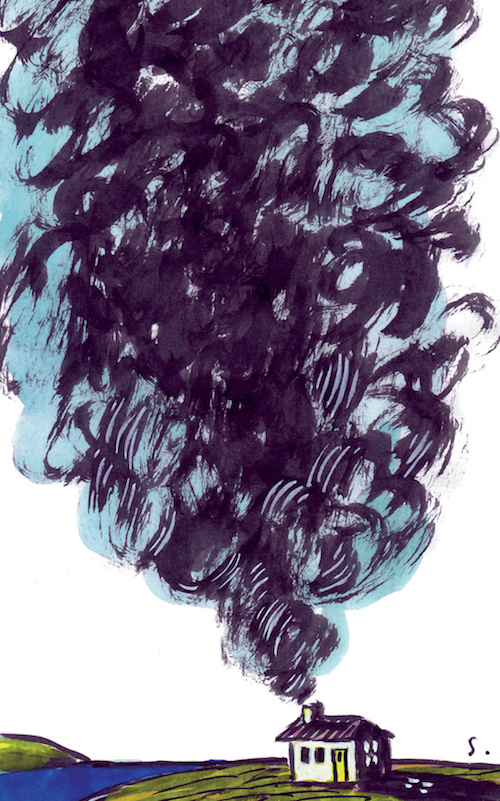
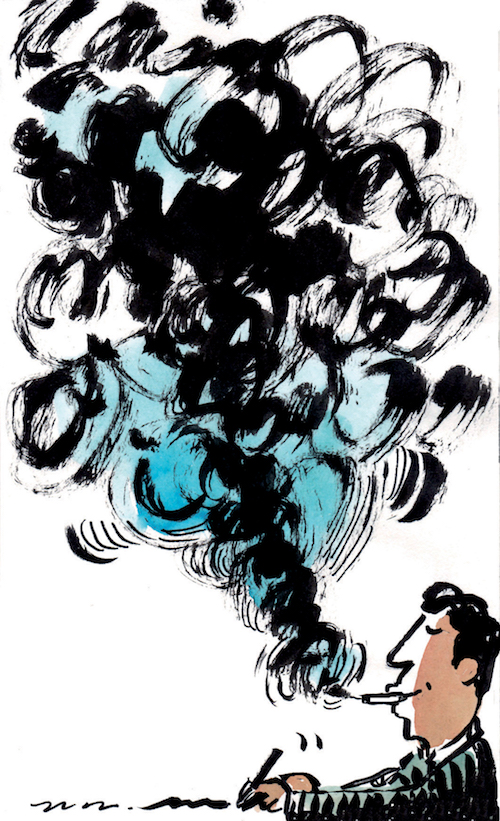
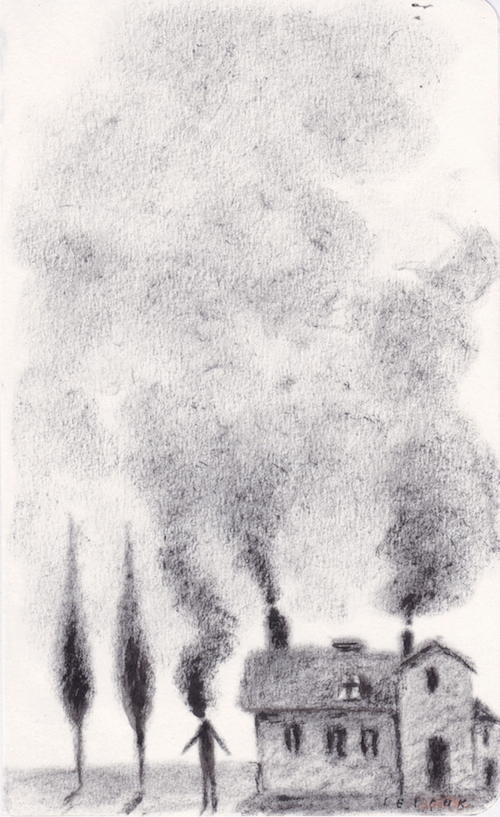
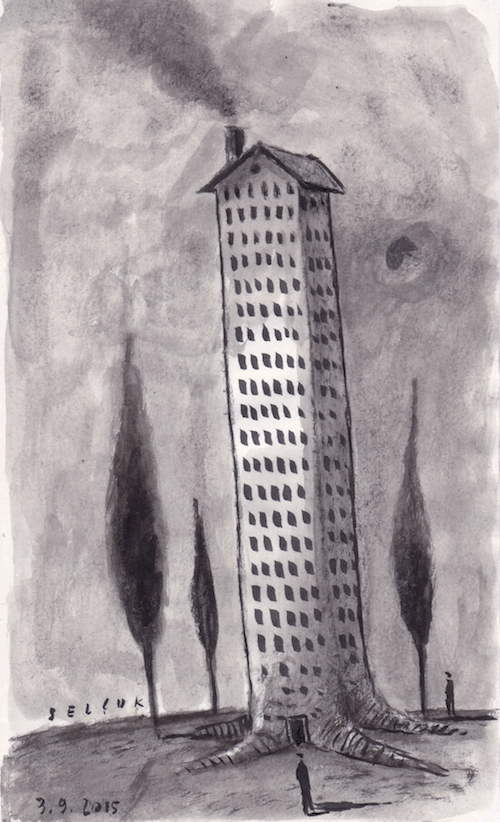
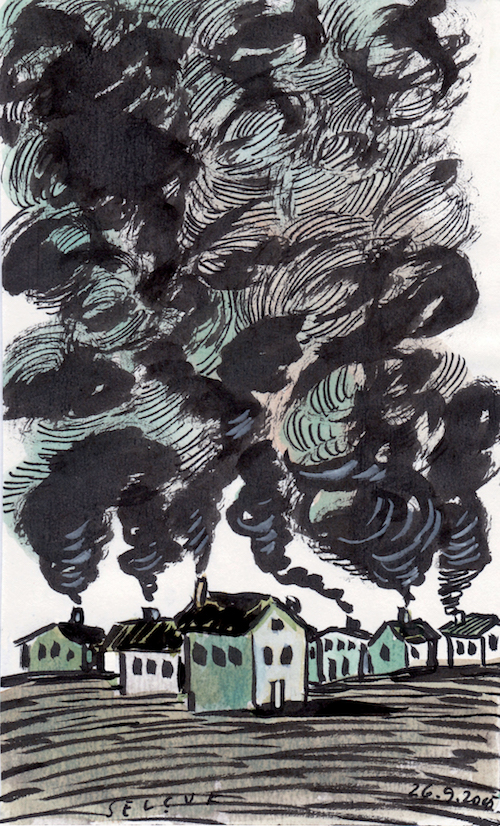
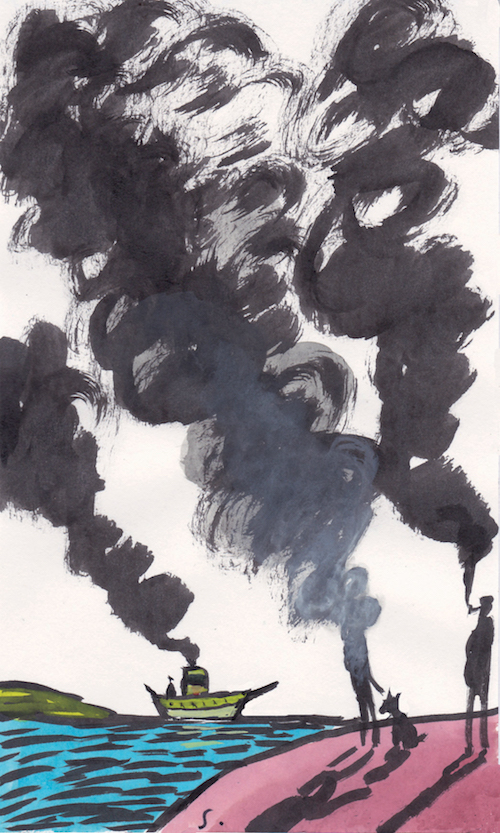
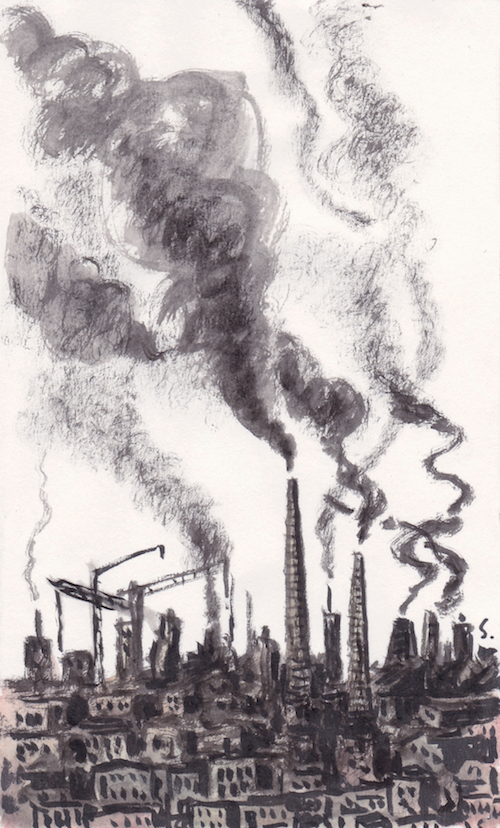
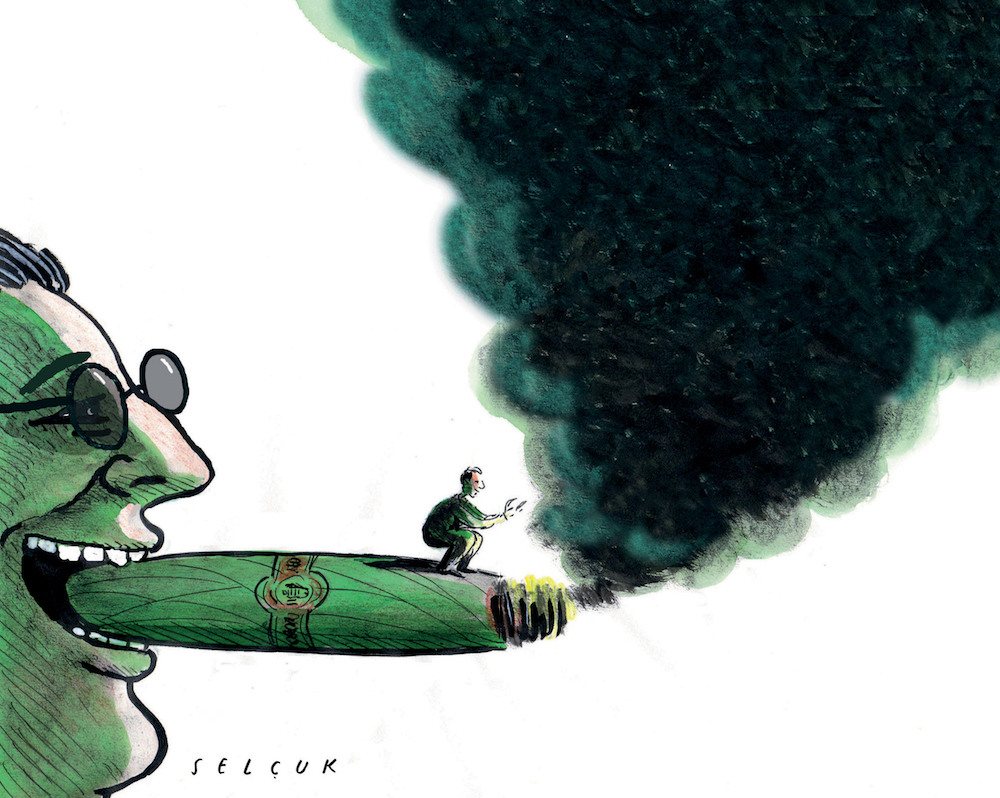
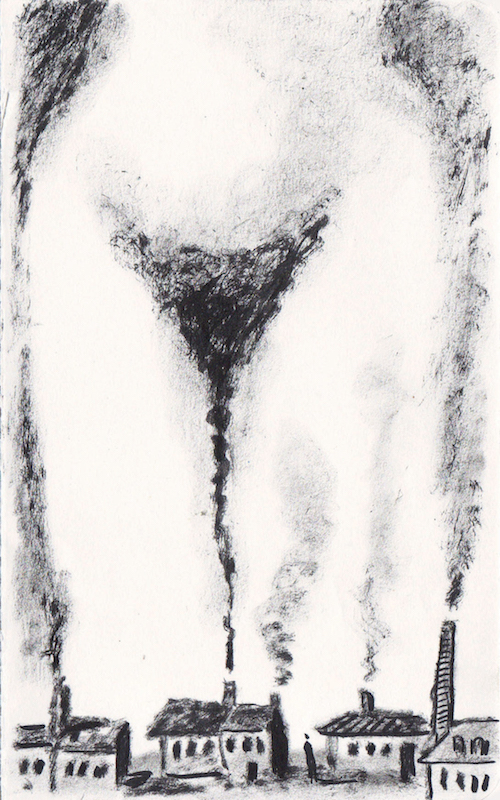
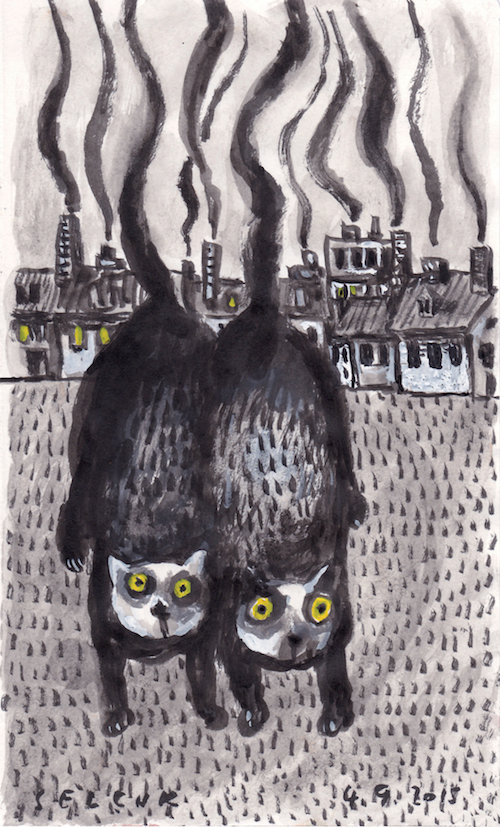
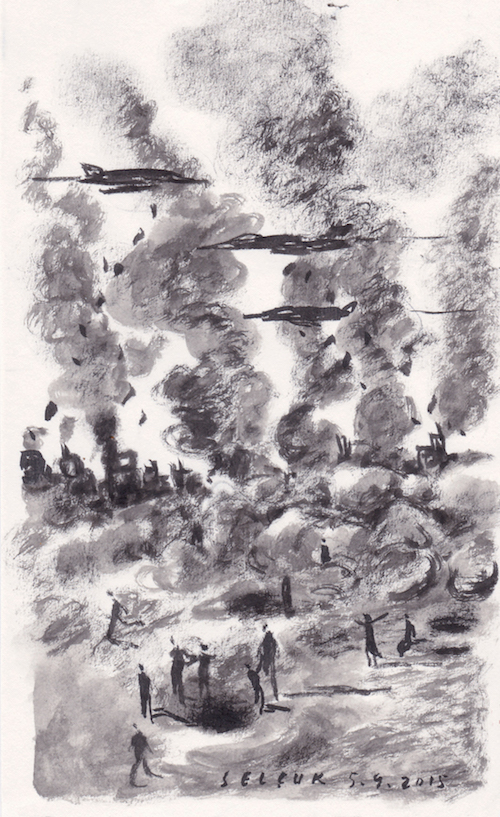
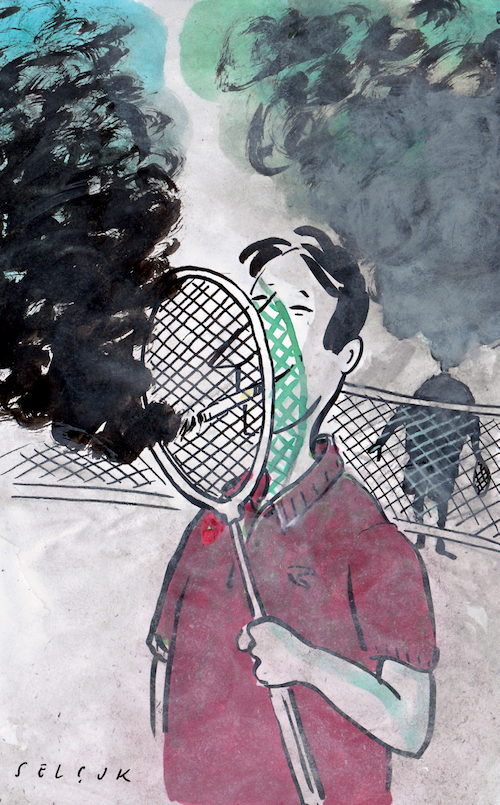
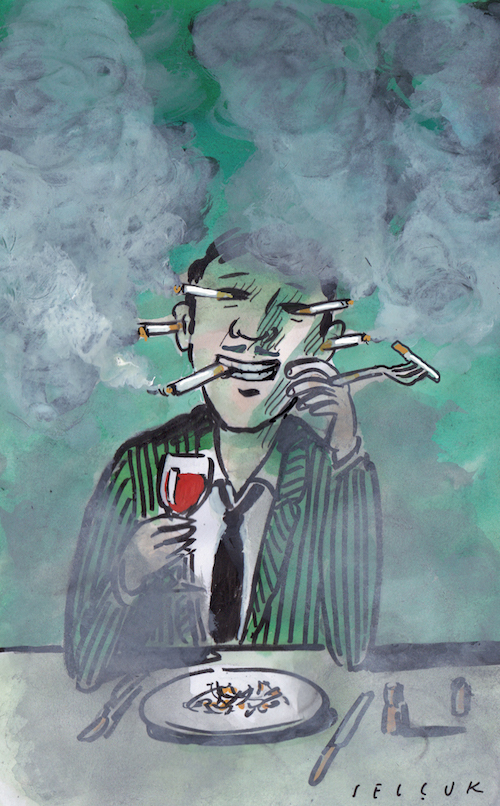
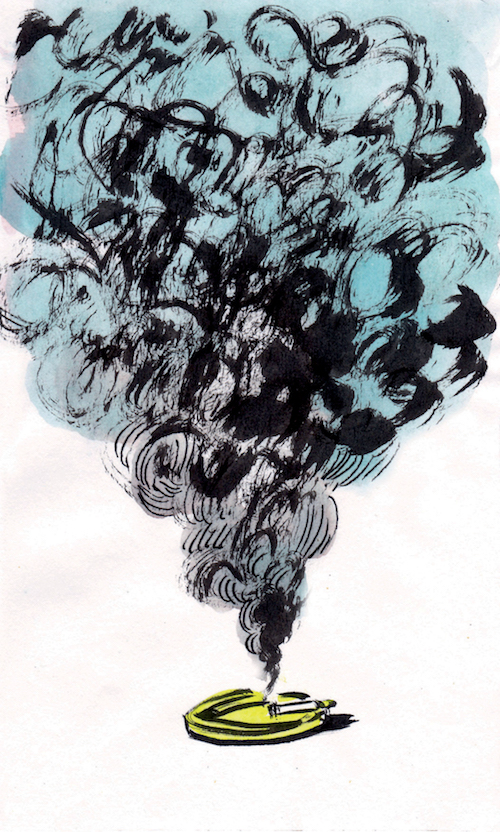
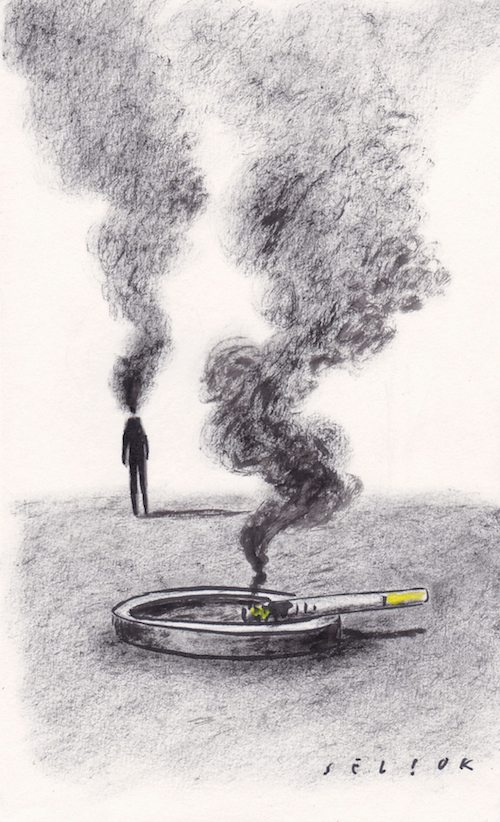
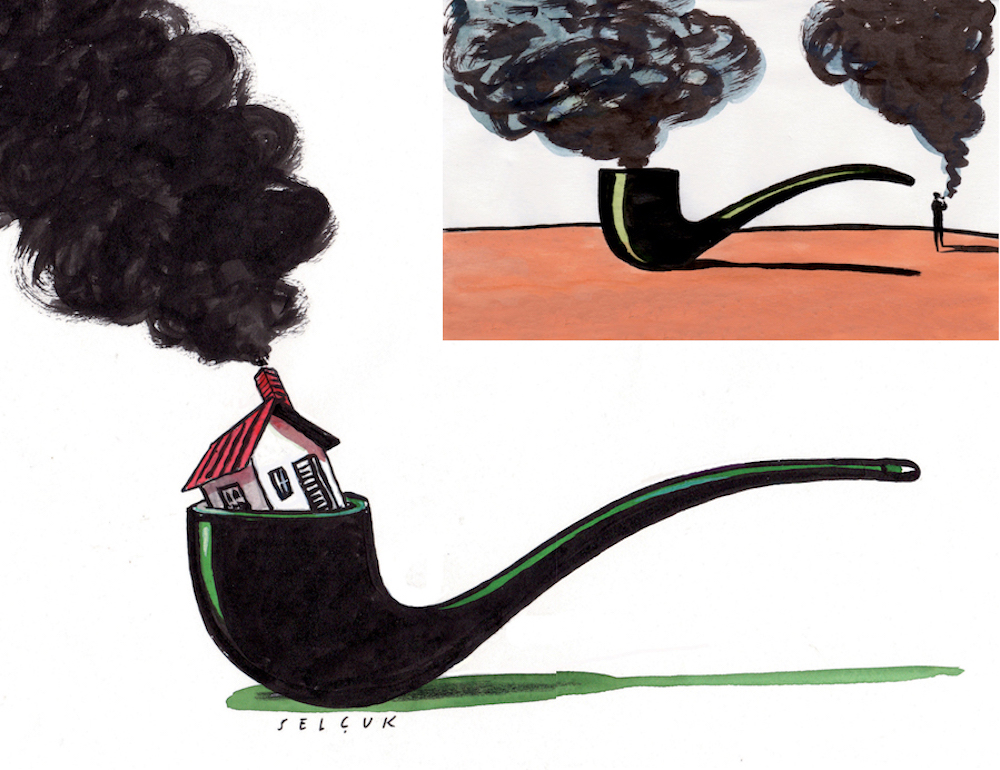
Comments
Post a Comment